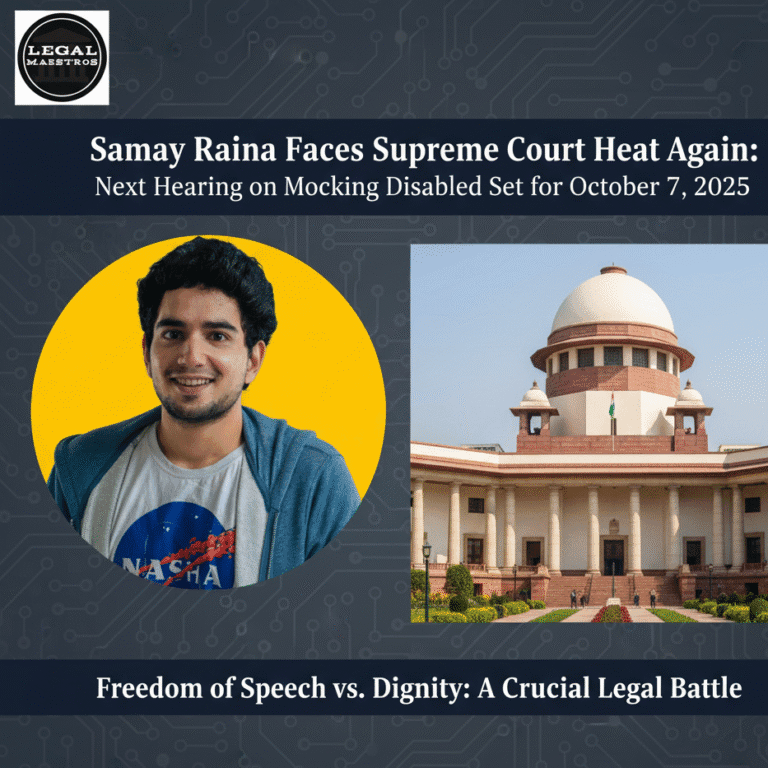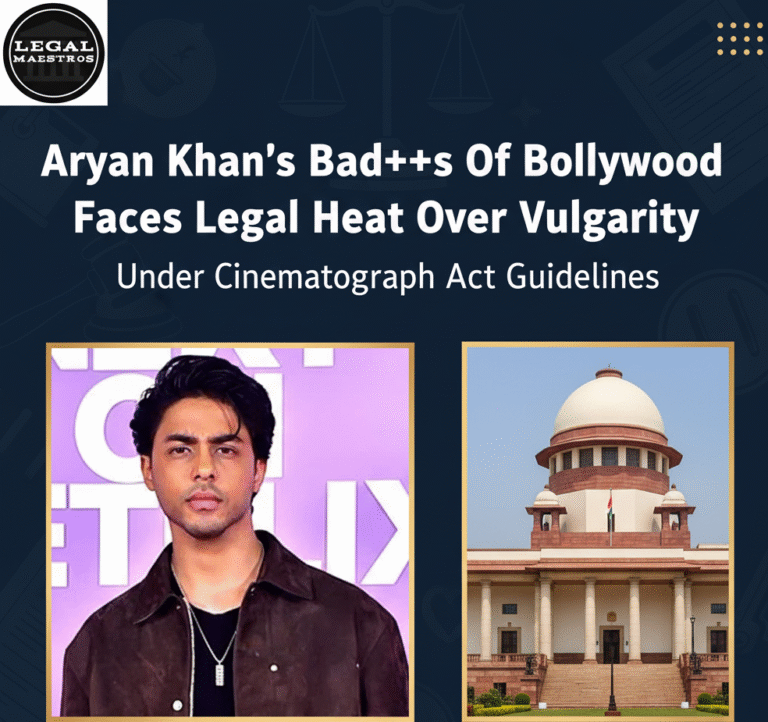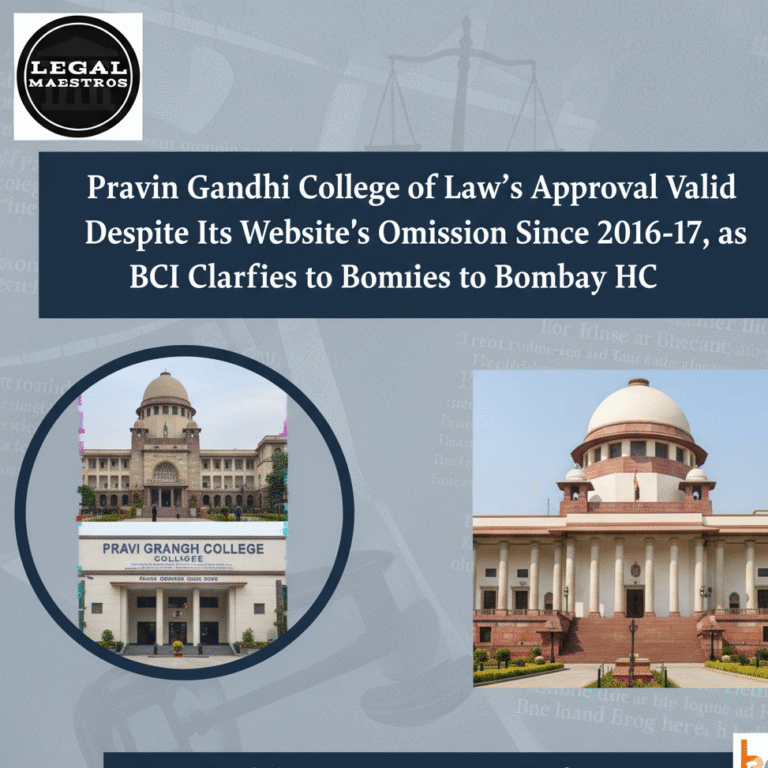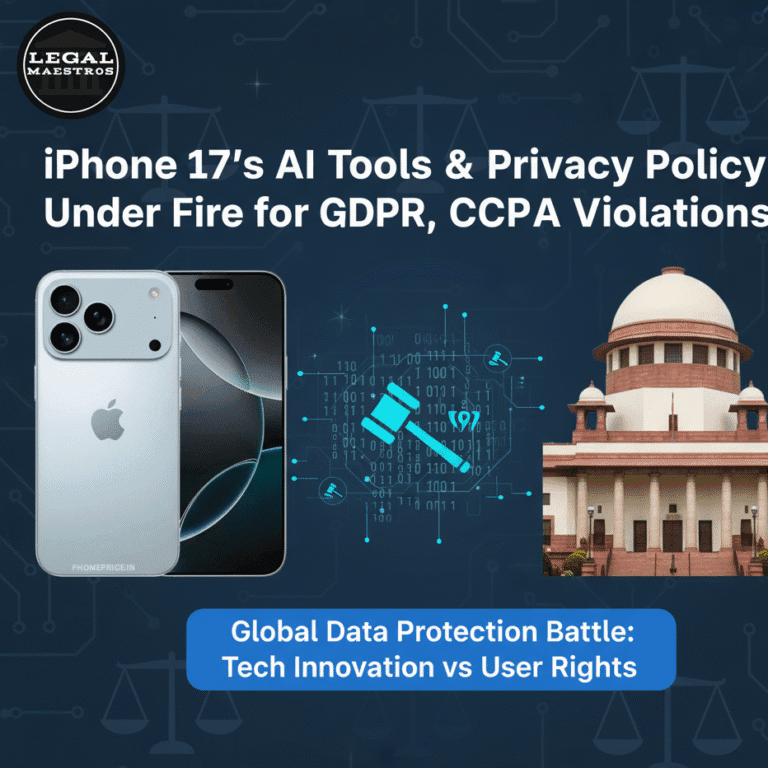
CBI Arrests 2007-Batch IRS Officer Amit Kumar Singal: Applicability of Prevention of Corruption Act in Rs 45 Lakh Bribery Case Involving Mohali Transaction
Introduction
The arrest of Amit Kumar Singal, a member of the Indian Revenue Service and a 2007-batch official serving as Additional Director General in the Directorate of Taxpayer Services, has attracted a great deal of public interest. Regarding a demand for Rs 45 lakh and the acceptance of Rs 25 lakh as a part payment, the agency grabbed Singal in tandem with Harsh Kotak, functioning as a middleman. The claimed bribery and the aggressive harassment of a pizza franchise owner using tax and food-safety concerns had some link. Apart from the outstanding headlines, the case presents significant issues about the implementation of the Prevention of Corruption Act, 1988 (PCA) to high public officials accused of asking illegal payment.
Facts of the Case
The controversy began when La Pino’s owner, Sanam Kapoor, was engaged in a franchise conflict with businessman Harsh Kotak. According to Kapoor, Kotak broke their agreement by procuring inferior raw materials, which led to several Income Tax and Food Safety agency complaints. According to Kapoor, Singal sought a payment of Rs 45 lakh using his official position in order to hide these notices, therefore abusing his power. On evening of May 30, 2025, Kapoor and Kotak met in Chandigarh. Then Kotak visited Singal’s Mohali residence to pick up the money. Responding to a formal complaint, the Central Bureau of Investigation (CBI) officials set up a trap and effectively caught Kotak with Rs 25 lakh. Singal was hauled into custody from his Delhi apartment almost immediately after that, and further searches turned up Rs 30 lakh in cash as well as 2.5 kilogram of gold jewelry.
Statutory Framework under the Prevention of Corruption Act
The Prevention of Corruption Act became legislation in 1988 with the aim of deterring public servants from abusing their positions for personal gain. The core of this piece of legislation is clauses making it illegal to demand and receive illicit satisfaction. Section 7 deals with public employees who find enjoyment other than legal pay as a reward or motive for any official behavior. Under Section 8, any person who offers or supplies such gratification is liable. Section 13 defines the phrase “criminal misconduct” by capturing a public servant who deliberately misuses their position or who intentionally benefits themselves or someone else by dishonest means. The complaint against Singal involves all of these sectors, therefore attesting to the PCA’s broad influence in the battle against corruption.
For More Updates & Regular Notes Join Our Whats App Group (https://chat.whatsapp.com/DkucckgAEJbCtXwXr2yIt0) and Telegram Group ( https://t.me/legalmaestroeducators )
Applicability of Section 7 to the Alleged Demand
Section 7 of the Public Service conduct states that a public servant who takes gratification that is not their statutory pay for any purpose or reward for undertaking or abstaining from any official conduct would be illegal. Ayurveda In this specific case, the prosecution must prove that Singal, in his capacity as a high-ranking revenue official, specifically asked for a bribe in order to affect the direction of taxes and food safety. Significant evidence of Singal’s desire to translate his statutory power into personal benefit would come from the trap designed by the Central Bureau of Investigation (CBI) and the admission noted on phone recordings. Moreover, the fact that Singal stole cash and expensive jewelry during searches supports the State’s claim that his acts reflect an illicit gain directly related to his official obligations.
Role of Section 8 and the Middleman
Any person who promises or gives gratification to a public servant in order to affect the official behavior of such servant is liable to the penalties stated in Section 8. This regulation obviously relates to the arrest of Harsh Kotak at the crime scene. This emphasizes how Section 8 might identify not just public officials but also private citizens supporting corruption. One instance of this is Kotak’s mediation between Kapoor and Singal. The Central Bureau of Investigation (CBI) has developed a strategy to apprehend Kotak when he is in cash so as to destroy dishonest deals. This strategy reveals the Act’s aim to punish the person requesting the money as well as the one handing it to them.
illegal Misconduct in line with Section 13 of the Public Service Act involves illegal activity carried out by public officials, therefore increasing the extent of responsibility beyond the basic act of bribery. This category includes cases where a public servant deliberately gains herself from illicit sources or knowsingly misappropriates property. Section 13(1)(d), which covers the intentional enrichment of a public servant in a way that is disproportionate to their known sources of wealth, is extremely likely to be used by the prosecution. The significant recovery of gold and cash resulting from searches raises the possibility that Singal has significantly more than his legal income. This increases the evidence supporting his criminal misconduct charges.
Criminal Misconduct under Section 13
The arrest of a senior IRS officer seriously undermines public confidence in the handling of taxes. Should a high-ranking official be discovered to have engaged in extortion, it not only erodes confidence in the system but also calls into question the integrity of present investigations and prosecutions under supervision by that person. The Central Bureau of Investigation (CBI) has acted quickly and opened open trap operations to convince the general people that no public servant is above the law. To prevent situations of a similar kind, the case also emphasizes the importance of enhancing internal inspections, generating frequent asset reports, and using effective supervising mechanisms within the civil service.
Impact of the Arrest on Public Trust
Defense lawyers often wonder if there is enough evidence during well-publicized cases such as these, alleging procedural mistakes or entraption. They can claim that the recordings were changed in some manner or that the trap was not executed as intended. Singal’s legal team might potentially argue that, by referencing past increases, allowances, and family investments made, the seized assets were rightfully acquired. But given the PCA’s strong provisions—especially the presumption articles about assets that cannot be justified—the accused has the obligation of providing a convincing justification for money that has been confiscated.
Defence Strategies and Anticipated Arguments
The court system guarantees that people have the right to a fair trial, which includes the right to bail and the assumption of innocence even when the PCA imposes harsh penalties. Due to the nature of the charges and the risk of evidence manipulation, the Central Bureau of Investigation (CBI) could deny bail claiming the possibility of flight or influence over witnesses. The courts will have to find a balance between these factors and the accused person’s liberty right. The precedent set in cases similar to the one before the PCA suggests that bail is only granted if the evidence given by the prosecution looks to be inadequate or where the accused has a fixed residence and no history of avoiding arrest.
Judicial Safeguards and Fair Trial Rights
This specific case is testing India’s anti-corruption system. Under the PCA, a successful prosecution might enhance deterrence and convey a message of zero tolerance for corruption at all levels. It could also result in demands for change, including the digitalization of clearance processes in order to reduce the number of in-person meetings, the improvement of protections for whistleblowers, and the application of more strict administrative penalties for officials discovered guilty of corruption. Conversely, any acquittal based on technical reasons might encourage unethical behavior and erode public confidence in institutions’ investigation.
Conclusion
Amit Kumar Singal’s arrest in the case involving the bribery of Rs 45 lakh is a perfect illustration of the PCA’s capacity to target public officials as well as private intermediaries involved in corrupt practices. Sections 7, 8, and 13 provide a strong legal basis for punishing people who utilize public power for their own personal advantage. The outcome of the accused will not only affect his fate but also affect the fight against corruption in India’s administrative machinery as the court system reviews the evidence and negotiates the procedural safeguards. The case shows how difficult it is always to preserve public resources and uphold moral norms in the field of politics.
For any queries or to publish an article or post on our platform, please email us at contact@legalmaestros.com.





